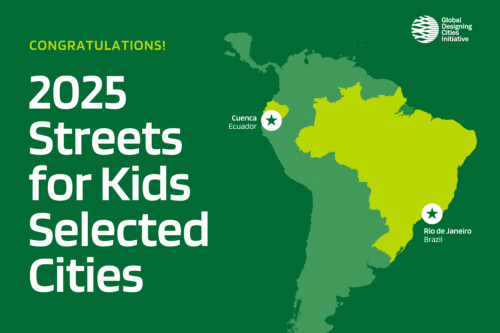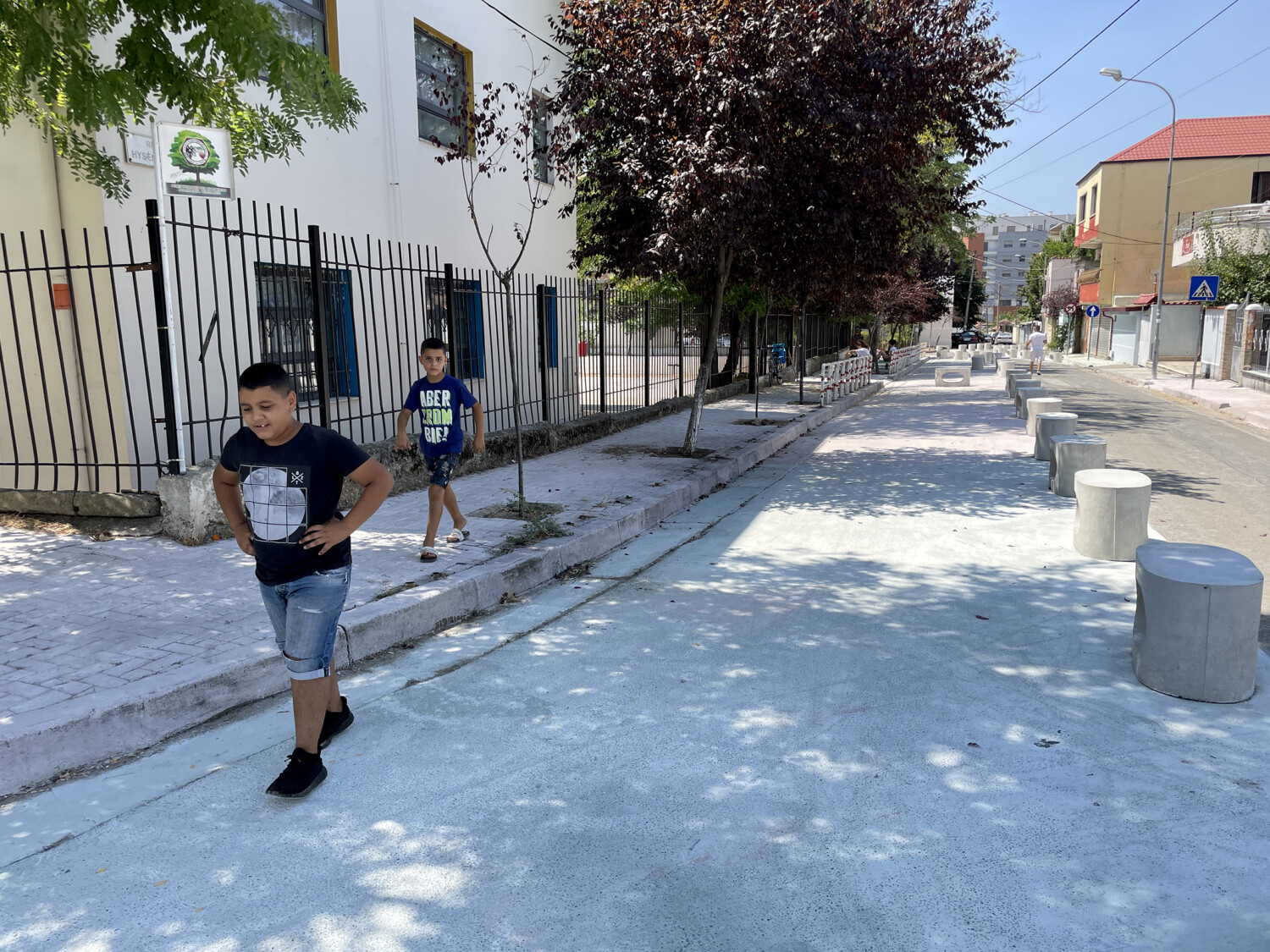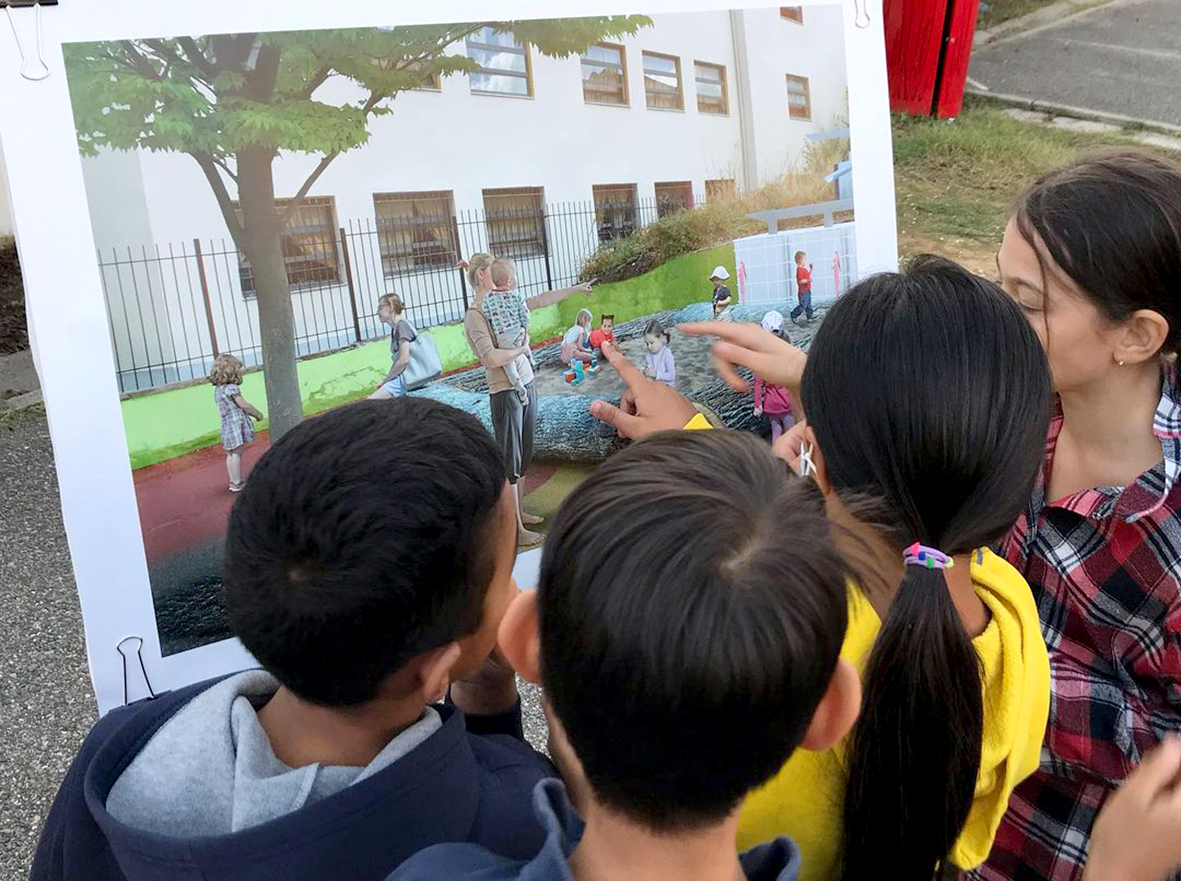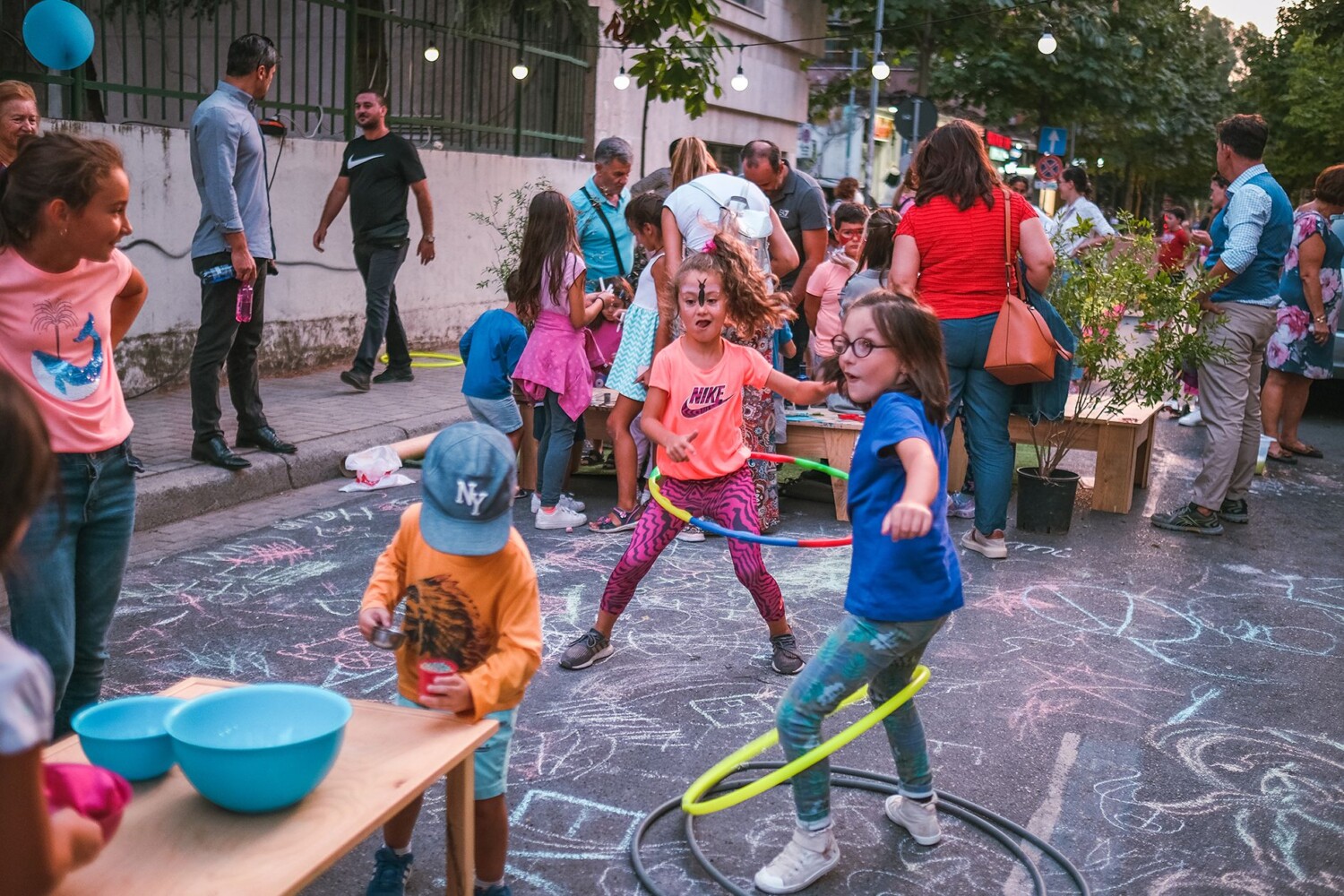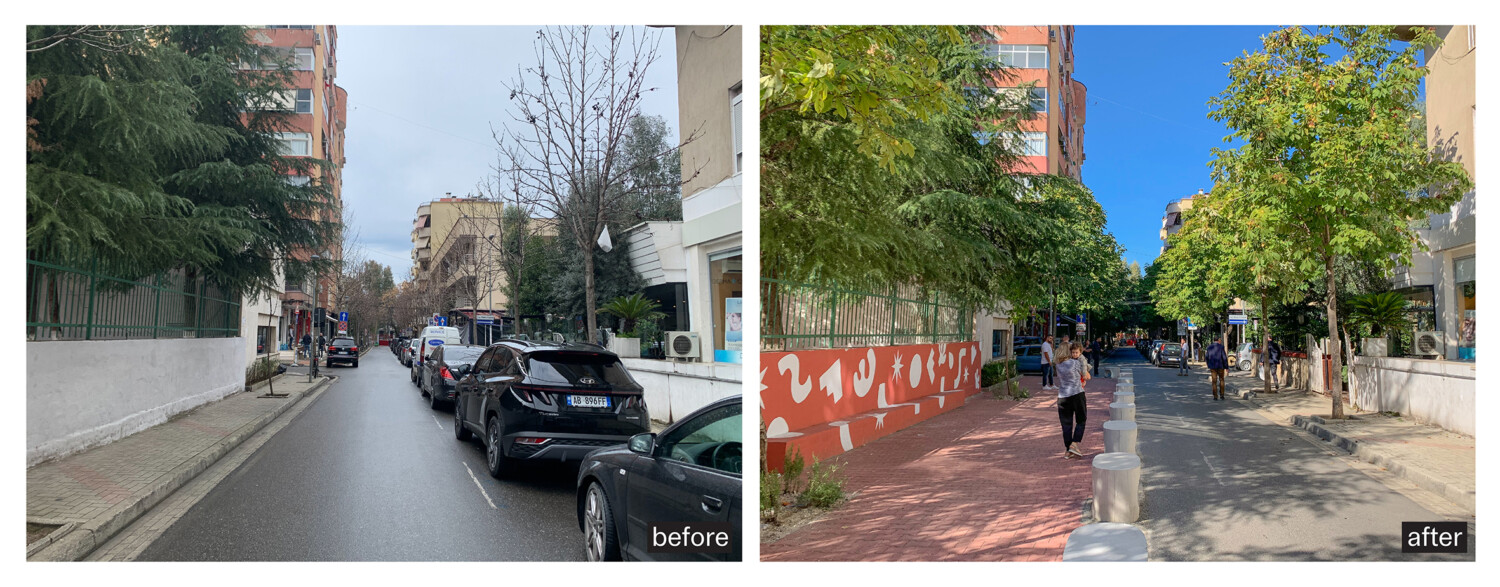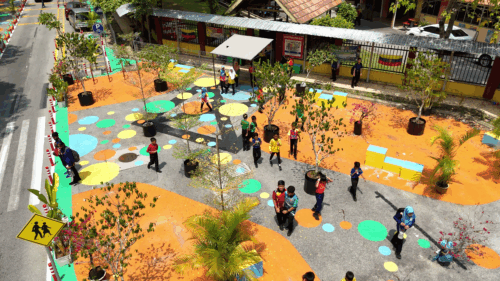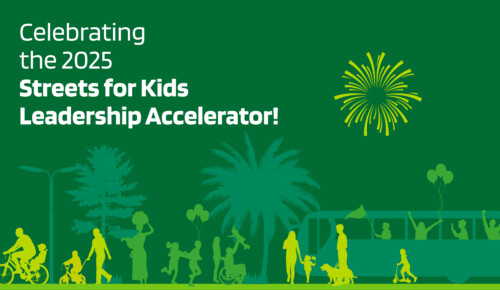The Global Designing Cities Initiative (GDCI) Streets for Kids team supported the transformation of two sites into school streets in Tirana, Albania: an interim project at Gjon Buzuku School, as well as the community engagement and design phases for a capital construction project at Edith Durham School.
Gjon Buzuku is a primary school located on Kahreman Ylli, a busy street in Tirana. More than a thousand students attend the school each day, but Kahreman Ylli is a wide street where drivers travel at high speeds — putting students, parents, and teachers who cross at risk. At the end of 2020, GDCI—along with Albanian nonprofit Qendra Marrëdhënie—selected the school as a Streets for Kids project. The Municipality of Tirana realized this was an important place to intervene to make the street safer, and approved the project.
Throughout the implementation of this project, Qendra Marrëdhënie worked closely with Tirana’s Department of Transport and Mobility and established institutional relationships with different departments in the Municipality of Tirana—including the urban planning, traffic management, education, and police departments. The project team also established close relationships with school staff, allowing a more hands-on, collaborative approach to completing this project.
After completing this project, there was a 16% decrease in vehicular speeds, and a 59% decrease in vehicles per hour. In May 2021, the Municipality of Tirana, along with the support of GDCI and Qendra Marrëdhënie, successfully completed the Streets for Kids project and made significant safety improvements—making this area of Kahreman Ylli the first School Zone in Tirana.
The implementation started in October 2020, addressing a number of issues in the area—including air pollution from vehicular exhaust, and wide lanes that enabled high travel speeds. The project converted 1,680 square meters of street space into dedicated pedestrian space and transformed 310 square meters of underused parking space into a dynamic play space. Additionally, the city planted 25 trees and installed 25 square meters of new seating. The project introduced sustainable stormwater management elements and installed lighting that added a layer of perceived safety. The project team purchased all materials and services locally, within a 2 km radius of the site.
On May 6, 2021, an inauguration tour took place with the presence of the Ministry of Education, the Municipality of Tirana, and multilateral organizations like the United Nations Development Programme (UNDP). On June 1, 2021, the project team held an event that coincided with International Children’s Day and the graduation of preschool students who were involved in the project from the start.
The success of the Gjon Buzuku interim project led to the capital construction project at Edith Durham—a school located in Rruga Pjeter Bogdani, in the city center of Tirana.
A crucial component of the Edith Durham design process was its community engagement efforts. The project team hosted a number of different street activities on the site—such as street parties that included panels on mobility, live music, cooking classes for kids, and even a cycling school set up in the schoolyard with toddler push cycles. The project team also surveyed people on what mobility-related needs and challenges they saw in the area and what changes they wanted to see.
These street activities were crucial in building a sense of strength and momentum in the community that convinced the Municipality of Tirana to invest in a capital construction school street and fast-track its construction over the summer of 2022. They also contributed to demonstrating to the site’s immediate neighbors the broad cross-generational appeal of such an intervention and what they would be getting in return for giving up the street parking on the block.
The approach to pop-up street parties that developed at Edith Durham became a model for all project sites across the city.
The Municipality of Tirana has budgeted for 12 permanent school streets in 2023. Some are interim streets that will become permanent, while others will be new project sites.
But the efforts of the city have continued. For example, on February 6, 2023, the city broke ground on the “School Block” project—which will renovate all four streets surrounding an entire city block home to two primary schools, a kindergarten, and a nursery.
